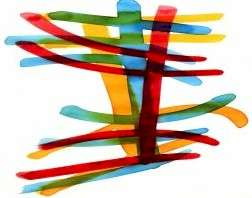Opening Speech |
|||
| Papers | |||
|
Introduction It is with great emotion that I introduce the reader to the "Acts" of a world congress, a statutory requirement of the World Mediation Forum, and the third such congress to take place in the history of Mediation. |
|
|
|
|
|
 |
|
|||
| In
other cases the practice of mediation is inserted as a component of their
profession, which could be that of manager, psychologist, lawyer, doctor,
judge or teacher, of researcher or observer. Mediators are, however, professionals oriented towards research, on the one hand into the causes which go together to activate a need for mediation processes, and on the other hand towards observation and the perfection of the techniques and methods which are directed towards helping the individual attain peaceful, serene and democratic co-existence at an individual, group level or among peoples. Many experts assert that political, social and economic disintegration, as a consequence of violent and peremptory changes, induce a contrary force, that of cohesion, dialogue and seeking of the other. Each person puts into the profession personal style and adaptation to the context in which he or she is operating keeping close to his or her professional ethics. |
 |
|||
 |
Mediation, an art which is
both ancient and modern at the same time, is practised in different
fields, ranging from penal to civil, social to environmental, with various
techniques because, anchored in its most basic principles which are
founded on the neutrality of the mediator, it allows space for creativity. |
|||
| The
mediator, experts of various disciplines claim, should possess certain prerequisites.
He or she should be empathetic and impartial; the mediator is not a therapist,
nor is he or she a lawyer, consultant or judge, but a mediator, whose peculiar
activity is that of facilitating the reconstruction of communication channels
between conflicting parties, to accompany them in the positive management
of that conflict through the recognition of the other as different from
the self. Not always and not necessarily is the mediator a physical being. So … who is he or she? What is he or she like? What does he or she do? These "Acts", which I have followed since their conception, which I have nursed since their birth, which, as delegate of the World Mediation Forum for the organisation of the III Congress, I have read and nurtured, contain all the answers and know no boundaries: they come from all four corners of the world and are aimed at all readers and, in particular, to those who are able to find new interests, to be stimulated and to find opportunities for exchange and personal enrichment. Savina Pinna |
 |
|||
|
|
||||